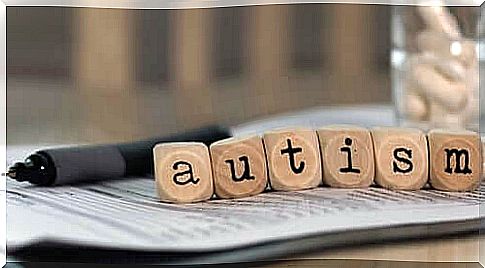Adults With Autism: Challenges For Well-being

When people talk about autism spectrum disorder (ASD), it is quite common for them to think about the challenges and needs of children who suffer from it. We know that early detection improves their development and quality of life. But what about adults with autism? What needs, support and strategies does an adult man or woman with this neurobiological condition have?
As researchers improved the diagnostic criteria during the 1990s, it is now not only possible to identify children with ASD in school. Many adults can now also find explanations for their behavior. Finally, they can now find an explanation for their characteristics and the origin of their personal limitations. One thing is clear: this is a disorder with a very wide range of characteristics and needs.
Some adults with autism have Rett syndrome, others Aspergers. Adults with autism can be very functional. They can also be very dependent on the help of others and have severe communicative limitations, problems with social interactions and exhibit repetitive behaviors. Regardless of the symptoms, there is one thing to keep in mind. Psychological attention, social assistance and the right to inclusion are important in the care of these individuals. That there are adults with this condition is a reality that should be visible to guarantee the response they need. Only in this way do they achieve the well-being that all people deserve.
Statistics show that close to 1% of the population has some form of disorder within the autism spectrum. Early detection and adequate psychological support can drastically improve the future of this group in our society.

Adults with autism: what are their needs?
It is important to know that adults with autism have traditionally not been studied enough, which means a lack of understanding at present. In fact, they have been neglected. Fortunately, researchers have begun to show more interest in this area in recent years. Now science has more statistics, more resources and more knowledge, though not enough.
Everything leads to a main goal: to offer individual expertise to each person based on their individual needs. However, there is a problem with current practice. Many adults who are highly functional do not even know that they are suffering from the condition.
These are independent individuals with responsibility for work and larger projects who sometimes feel that something in them is going in the wrong direction. In fact, problems with social interaction, hypersensitivity to stimulation and anxiety severely limit their quality of life. It is also important to know that there are no two people with ASD who show exactly the same traits.
Yet, in addition to the uniqueness of each case, autism in adults affects their daily lives. Early detection and personal treatment can lead to change, improvement and well-being.
Let’s look at some special challenges and types of help these people may need.
Counseling with psychologists specializing in adults with autism
If you have an adult family member with autism or suspect that you may be on the spectrum, it is best to consult an expert in the field. What can a trained psychologist do for you?
- First, a trained psychologist can evaluate the patient to identify both the strengths and cognitive, behavioral, and emotional needs of the adult with autism.
- A therapist can also conduct interviews with people who are present in the patient’s daily life.
- The therapist may perform certain tests to rule out other causes.

Adults with autism and types of therapy
Psychological intervention in an adult with autism always depends on his specific needs. Therapists usually help patients work on these aspects:
- First, to practice communication education and social skills.
- Treatment helps them to develop and improve everyday life.
- The psychologist can help them change certain behaviors to help with group integration, well-being, and social behavior.
- The patient must practice functional routines to achieve greater safety and autonomy.
- The adult with autism can be helped to seek out working life.
- It can also be important to help with anxiety or mood disorders such as depression. This type of disorder often means that patients have to deal with several different emotional challenges. In these cases, cognitive behavioral therapy is very useful.
- Likewise, individual psychotherapy is also an important aspect. A man or woman with ASD may need to improve their romantic, family or work-related relationships.
- Finally, some adults with autism have more serious cognitive problems. They may have behavioral problems that require psychological support.
Family support and the local environment
Last but not least, dealing with adults with autism must include consideration for their family environment. Fathers, mothers, partners, children… Knowing how to act or simply understanding the disorder is an important step in improving patients’ lives.
In summary, psychology represents an important daily support. It can also help eradicate fear, doubt, anxiety and stress. Essentially, the personal reality of this large collection of people in our society is complex and unique. Thankfully, resources, strategies and experts can help simplify life and offer a better quality of life.









